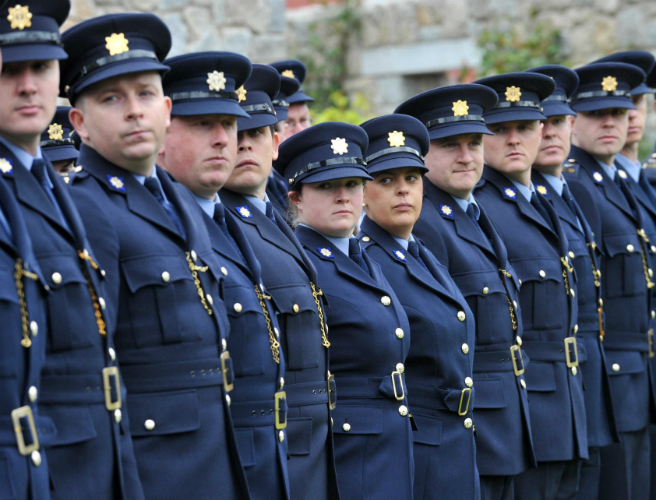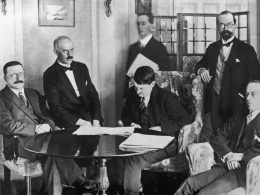By James McCabe
The depraved witch-hunt against Garda whistleblower, Maurice McCabe, by a cabal of senior level Gardaí in revenge for exposing corruption within the force sparked such mass revulsion that it threatened to bring down the government. Following other recent revelations of corruption, illegal phone-tapping and politically motivated spying by Gardaí, the establishment is keen to divert attention away from this scandal.
Apart from exposing the hypocritical reality of an organisation that claims to uphold justice, these scandals dispel the myth that state institutions like the police and the courts are politically neutral. History shows that the judges, the armed forces, and the police certainly don’t “stand above” politics.
The Irish state
When the Free State Dáil first convened in September 1922, one of its first aims was to crush the 26-county wide postal workers’ strike. From the get-go, this state set about enforcing the rule of the capitalist class through violence and intimidation. Shop stewards were arrested, union offices were raided and armoured cars were driven at speed at picket lines. In 1923, 600 troops were sent to Waterford to suppress a county-wide strike of farm labourers there.
The establishment would have you believe that judges and senior civil servants are independent of politics. They supposedly represent the “nation” as a whole. To create an aura of impartiality the labour courts may sometimes find in the interests of workers, but on balance the record shows that the Irish state’s main aim was and is to safeguard the wealth and resources of the ruling class and big business. During the historic bank bail-outs of recent years, state institutions were used to transfer an unprecedented amount of wealth from the majority to pay off the debts of well-connected bankers and builders.
You do have the choice to vote in a new government every five years or so, but the real power is held by unelected senior civil servants. These senior civil servants are hand-picked for their ideological commitment to defending the system, and are given enormous salaries to ensure that they’re kept completely out of touch with the living stadards and outlook of working people. The current Garda Commissioner, Noirín O’Sullivan, is paid a salary of €180,613 per year, for example.
Frustrated expectations
There has been a significant expansion of surveillance and the harvesting of data by states against their own populations across the world in recent years. A recent piece in The Economist magazine noted that the millenial generation are the best educated generation in history, but face a reality of significant levels of unemployment, underemployment and precarious, low-paid jobs. It warned that this will lead to a dangerous situation for capitalism as,”angry young people sometimes start revolutions, as the despots overthrown in the Arab Spring can attest.”
In Ireland in 2004, only 77,491 students went on to third level education. By contrast, in 2016, 217,530 were in higher education with more enrolled in other forms of further education. The economic prospects and political volatility both here and overseas, will create a clash of expectations between what millenials feel they deserve and what capitalism has to offer.
Increasing repression
It is no accident that in recent years the tops of the Gardaí have launched undercover spying campaigns. For example, “Operation Mizen”, an initative led by Noirín O’Sullivan’s husband, involved the phone-tapping of anti-water charges activists. The political policing of community activists from Jobstown along with AAA and Socialist Party members is a case in point.
The far-sighted elements of the establishment are well aware that living standards will continue to stagnate at best in Ireland, so the attempts to criminalise the right to protest now has a very real purpose from their point of view.
The criminalisation of the right to protest is an attack on the democratic rights of all working people, from workers moving into strike action in the private and public sectors to activists fighting to repeal the ban on abortion. In the struggle to end the rule of 1% and for socialist change, we should fight for the creation of a community-controlled policing organisation that is genuinely accountable to working people and not used as a tool to defend the status quo.












